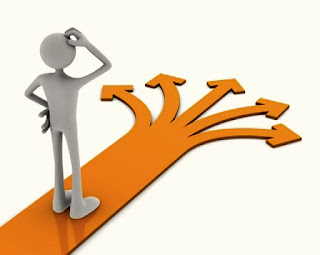All humans by definition are irrational.
This is the emotional state we are in. We have out grown the animalistic rationale behaving solely on survival, yet animals when not in their everyday behavior of such survival show emotions and irrationale.
Are theists more irrational than non-theists?
The point is here that rational or irrational isn’t a general state of mind. You can be fully rational about one thing and totally irrational about the other. For the deduction whether one person is more irrational than another, we need to look what it would be that we call irrational. Irrational behavior or thinking means it is inconsistent with logic (hence irrational could be equalled to illogical).
So, irrational would be illogical response to specific stimuli, information or knowledge.
For instance, if we know snow is cold, illogical would be to say it is hot. If we know snow melts from heat, it would be silly to say you can’t melt it with a fire. That would be irrational.
Humanity started of as an animal with a totally changing habitat, which gave its nervous system many new possibilities. It didn’t need as much responses (all based on fear meant for survival) to survive anymore, it could predict, plan and imagine. Eventually the huge brain mass was used to make causal connections which weren’t needed for survival of the individual, but for the generation, and next and next. Communication became more complex and caused holding knowledge from one generation to another other than the fear etched instincts that are inherited genetically.
Cognitive knowledge was growing. But this cognitive knowledge was build on emotional knowledge (patternicity), for survival. As with all species, the choice for survival supersedes that of the cognitive mind. Thus fear is still causing people to choose rather on fear than cognitive insights. This is what we can define as irrational (as long as the choice is not warranted by actual stimuli). Patternicity eventually caused agenticity and this is where belief started.
As with every theory, one first has to believe something occurs for a specific reason. At first, like children, humanity saw patterns that seemed connected to arbitrary events. Mostly connected to their own actions. Opening your eyes in the morning would bring the sun back. That kind of magical thinking. But like children, humanity learned how to distinguish more and more.
When more and more humans populated the earth due to the improving temperatures and more secure locations, more and more ‘technological’ advancement came about. BUT, emotions came first, societies grew on the same fears and emotions as the first humans. They still needed soothing for these fears, to not go crazy. Religion was the structure that, based on answers given by ancestors, to these fear questions, controlled the societies (like witch doctors and medicine men and others ), even when people were using less emotional driven choices to decide who should lead (often out of greed, or alpha male protection).
Eventually humanity started to become fragmentised. As everyone (literally) had their own belief, they would teach their children a little bit different. Eventually folklore and superstition were slowly discredited by logical thinking. We now could philosophize what was a rational thought and irrational thought. Something that was (by test and deduction) an illogical choice or reaction to the pletoria of impulses, was seen as irrational. As such, holding to any superstitious idea from before, was seen as irrational, because these ideas were rebuked by science and advancement in human intellect.
Answering that ancestors were both rational and irrational, is correct. We all still are. Humanity doesn’t know everything yet, but we do know where certain ideas came from. We even know that in some way, believing (irrational sometimes) isn’t mutual exclusive or is even required to get to the next step of finding out.
Irrational in a way is subjective to the observer, like quantum physics. Don’t tell Highs by the way.
So, yes, when a person is religious AND chooses to deny humanity’s collected facts, he/she is irrational. If one keeps to religion for the comfort of it, but still tries to find new knowledge to equate away the leftover beliefs, he/she isn’t automatically irrational.




